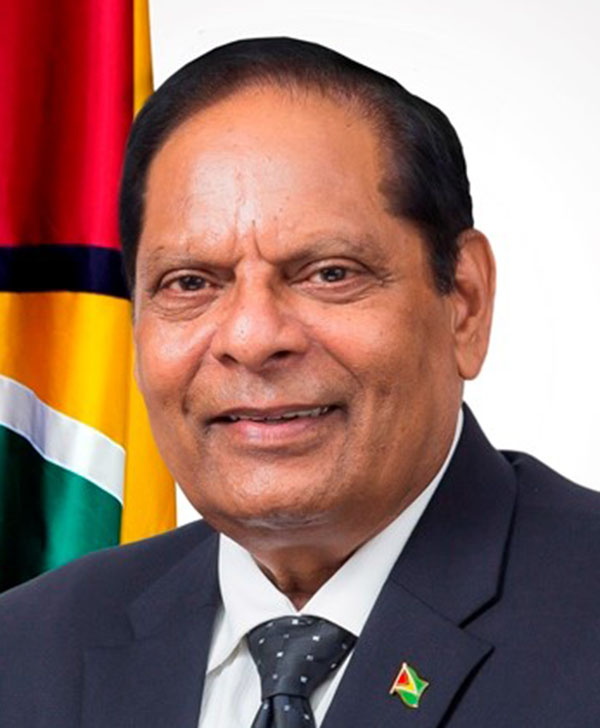Prime Minister Moses Nagamootoo seems unsure as to whether or not the Ministerial Code of Conduct applies to the July 8 incident involving Minister in the Ministry of Natural Resources, Simona Broomes. He has however indicated that the matter has been brought to his attention as leader of government business in the house and that he intends to engage President David Granger “at some time” on the matter
Concerns have been raised that Broomes abused her privilege as minister in the parking lot of the Amazonia Mall at Providence and possibly lied about the incident but aside from a comment by one minister the government has not said whether it has spoken to her about the incident and is scrutinizing her behaviour in relation to the Code.
At parliament, Stabroek News yesterday approached Nagamootoo, under whose signature the Code of Conduct was gazetted on June 12th, 2017 to ascertain whether it was being applied in this instance but the Prime Minister indicated that his understanding of the code is that is deals with conduct in the context of transparency in declarations of assets.
“I don’t know how this specifically applies… this is not a declaration of assets,” he said.
When this newspaper drew the Prime Minister’s attention to the fact that the code of conduct does not only address fiscal matters but also the “behaviour” of those in public office pointing out that yesterday’s edition carried an article addressing this very issue, Nagamootoo asked for time to read the article so that he could best respond to what it said.
As part of its manifesto the APNU+AFC coalition promised to deliver in its first “100 days” in office a Code of Conduct for Parliamentarians, Ministers and others holding high positions in government to abide by, including mechanisms for those to demit office if in violation of the code.
Two years later the Code of Conduct was gazetted as the Integrity Commission (Amendment of Code of Conduct) Order 2017.
There are several parts of the Code of Conduct which would warrant accountability on the part of the government and Broomes.
Under what the Code describes as The Ten Principles of Public Life it lists Accountability and defines it as “A person in public life shall be accountable to the public for his or her decisions and actions and shall submit himself or herself to scrutiny and criticism” while the second of the Ten Principles of Public Life is identified as Dignity which is defined by the Code as “A person in public life shall, in the execution of his or her official functions, conduct themselves in a manner which engenders the respect of their peers and the public”.
Additionally the fourth of the Ten Principles of Public Life is Duty which the Code defines as “A person in public life owes a duty to the public and shall consider themselves servants of the people” and the 10th of the Ten Principles of Public Life is Transparency which the Code defines as “A person in public life exercise[ing] his or her public decisions and actions with full and frank disclosure and provid[ing] when demanded by the public an explanation for his or her actions and decisions”.
Far from being only in relation to transparency, the code which Nagamootoo had oversight of also addresses matters such as sexual misconduct, entertainment and discrimination.









